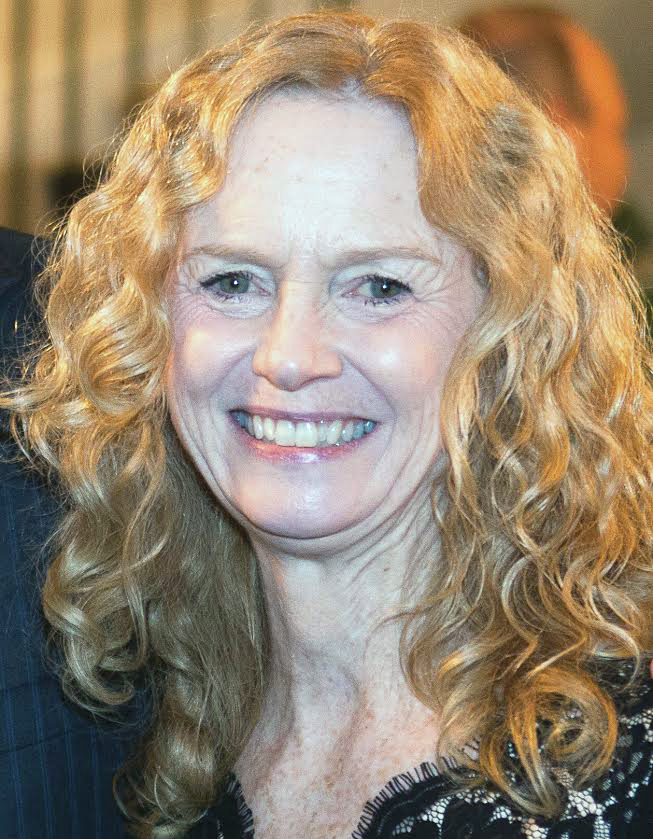
“This is affecting all of us. It’s not about mental health professionals sitting on one side and others sitting on the other side needing help. We all are here. … This is an ‘us’ experience.”
– Dr. Evan Fox, Hartford Hospital
By Stacey Dresner
The issue of COVID-19 and how to cope with the stresses it continues to place on one’s mental health has been in the spotlight of late, with many agencies, such as Jewish Family Services, creating special programs and hosting virtual talks to help alleviate the psychological affects of the crisis.
“We’re living through a time of fear and disruption in our daily lives that most of us have just never experienced, and I think that’s part of what makes this so challenging for people,” says Anne Danaher, outgoing CEO of Jewish Family Services of Greater Hartford. “It threatens our health, our safety, our financial security. Add to that the impact of all of the social isolation; we’re just not used to that.”
Danaher says she hasn’t seen a time like this before when so many people have been so anxious and in need of some mental or emotional health guidance. She estimates that JFS has seen a 20 percent increase in requests for clinical support and reassurance, short-term emotional support and resource coordination. To meet the demand, JFS has added an additional part-time social worker.
“We live pretty structured lives in many ways and now all of a sudden there is this massive disruption of the normal routines in our life. I think in our minds intellectually, and even in our bodies, this causes a whole series of anxious feelings that first responders of the world deal with all the time, but for many people this is uncharted territory,” Danaher says.
During a Zoom conversation on the subject last month, hosted by Jewish Family Service of Greater Hartford (JFS) and Tara’s Closet, Dr. Evan Fox of Hartford Hospital, noted that the COVID-19 crisis is unique in that it is affecting everyone’s mental health in varying degrees.
“This is affecting all of us,” Fox said in the May 14 conversation. “It’s not about mental health professionals sitting on one side and others sitting on the other needing help. We all are here. Frankly this is an ‘us’ experience and that’s what makes this engagement such a meaningful experience.”
Going Virtual
When COVID-19 began affecting people throughout Connecticut and talk of “sheltering-in-place” began, JFS switched from seeing clients in person at its West Hartford offices to utilizing “telehealth” – meaning clinical clients are now being seen virtually by their counselors on Skype and FaceTime. Clients without computers or seniors who are not up on technology are speaking to their clinicians by telephone.
“Years ago telehealth was considered a luxury for people who might not want to come into an office and needed to have therapy in their homes,” says Janice Rothstein, JFS director of clinical services. “But now it’s essential; it’s a necessity. And it’s been very successful.”
For people in the community who are not JFS clients but are having issues dealing with fallout from the pandemic, JFS has launched “JFS On Call”, an emotional support telephone hotline. From 1 to 3 p.m. on Mondays and Wednesdays, and from 6 to 8 p.m. on Thursdays, individuals dealing with fear and stress resulting from the pandemic may call the free confidential hotline to discuss their issues.
“The calls pertain to everything – the uncertainty of not knowing what’s going to hap-pen, how long it’s going to last, how to talk about it to their children, struggling with partners,” Rothstein explains. “For some people the problem is there’s no schedule. They say, ‘I used to get up every morning and I knew exactly what my day was going to be like and now that’s different for me, for my kids, for my husband.’ People are really trying to find a way to cope. It’s nice to be able to call someone who understands and is able to do some problem-solving with you or provide some tools for dealing with the stress.”.
A Resource for older adults
One of hardest hit populations has been the elderly, says Rothstein.
“Not too long ago we had Passover and Mother’s Day, and Father’s Day is approaching – all of these holidays and occasions that at one time we celebrated with family,” she says. “This has been a very different experience for those who live alone; who can’t have their family come see them. It’s been a huge loss – a loss of freedom and a loss of family, and a loss of tradition. It’s a new and very different world.”
That’s where the JFS mental health hotline comes in.
“It’s someone to talk to about your feelings, worries and fears. For some older adults we are ‘it’, because they are not able to go out of their homes. We can help them figure out what they can do with their time and how to have some control in their lives,” she explains.
A place to talk for young people
Rothstein says adolescents have also been reaching out through the hotline.
“It’s a safe place to talk about your feelings and your struggles,” she explains.
For younger children, the lack of structure and socialization can be an issue.
“It can impact their social development,” Rothstein says. “There is a lack of social interaction, a disruption of activities, not having a routine. There is a whole social dis-connect, as well as uncertainty and worry. So, as hard as it is, parents need to talk to their kids and listen to their fears and try to build some coping skills, which is not easy to do at any time.”
Ignoring these issues now can affect future emotional and mental health.
“I think there will be an ongoing mental health crisis,” Rothstein says. “Let’s look back at other traumatic events in the past. We know with 9/11 – especially with children, because they have been followed extensively – that the impact is long-term. For kids, a single childhood trauma lasts for years. A large scale disaster whether its traumatic, like mass shootings, or environmental like, flooding and hurricanes, is always accompanied by an increase in depression, post-traumatic stress disorder, substance abuse disorder, and probably a range of other behavioral disorders including an increase of domestic violence and child abuse. So we know that this pandemic is going to most certainly produce very similar issues long-term.”
Professionals – clinicians, pediatricians, and teachers – must be vigilant and watch for signs of trauma.
Maintaining mental health
According to Rothstein, there are steps we can all take to help maintain our mental health.
“Maintaining a routine, making sure we are sleeping, healthy eating, exercising, staying connected to friends and family; video chats for people who can’t see their family members, increased phone calls. Even older adults in their 80s and 90s should move, do some stretching. Do the things that give you joy. And stay hopeful. There are things we can control,” she counsels.
Rothstein says. “Even when we get back to what we used to think of as normal, we need to stay aware of mental health issues and continuing the dialogue.”
For needier populations, this has been a particularly trying time. But JFS offers several resources that can be of assistance, including the Anya Rosenberg Kosher Food Pan-try, Tara’s Closet, and the Jewish Employment Transition Service (JETS)
Barbara Roth founded Tara’s Closet, inspired by her daughter Tara Savin, who lost her battle with bipolar depression in 2010. A program of JFS, Tara’s Closet provides free clothing for JFS clients in need. Though the pandemic has forced the Tara’s Closet to close, Roth says the service Tara’s Closet provides continues. In fact, during the crisis, if somebody can’t afford the required co-pay, Tara’s Closet is covering that cost.
“Because we don’t know enough about the virus ,we felt it wasn’t safe to have people go through the clothing. So, Tara’s Closet now is giving their clients gift cards to Walmart to buy clothing for their families or for their families’ necessities,” Roth says. “About 100 clients are taking part in that. They can also get food from the Anya Rosen-berg Kosher Pantry.”
Roth says that shedding a spotlight on mental health and the services that JFS offers is critical now more than ever.
“There is nothing more important to me then helping people with mental health and now it is amplified a thousand-fold,” Roth says. “There are people who are suffering from anxiety, people who have lost their jobs and have lost their pay – it goes on and on. We are dealing with a quagmire of emotional trauma that people are facing and we are just trying to take care of our people.”
Due to the Covid-19 crisis, the 4th annual “Embracing Possibility: Spotlight on Mental Health,” a program of Tara’s Closet and Jewish Family Service of Greater Hartford, has been rescheduled from May 7 to Oct. 15.
Main Photo: In May 2019, Tara’s Closet introduced a pop-up location in West Hartford. Pictured here in May 2019 in the pop-up’s Bishop’s Corner location are (l to r) Bishop’s Corner Regional Property Manager, EDENS; Barbara Roth, Tara’s Closet founder; Pia Rosenberg Toro, JFS president; Anne Danaher, JFS CEO, Jewish Family Services in the pop-up space in Bishops Corner. (Credit: JFS)

Conversation with Anne Danaher
The outgoing head of JFS of Greater Hartford looks back on how mental health issues have changed over the years.
By Stacey Dresner
WEST HARTFORD – Over the course of the 30 years that Anne Danaher has been on staff at Jewish Family Services of Greater Hartford – 18 of them as chief executive officer – the social services agency has grown enormously.
Under Danaher’s leadership, JFS has grown to include the Anja Rosenberg’s Kosher Food Pantry; the state-licensed Benet Rothstein Child Service Program, which provides crucial psychiatric outpatient services to children and teens; the Jewish Employment Transition Service (JETS) created as a response to the economic downturn and significant local unemployment; and JFS Care at Home, a home care agency which later expanded to include Geriatric Management.
During Danaher’s tenure, JFS also launched Tara’s Closet and its annual Mental Health Awareness Month event in May, designed to reduce the stigma around mental illness.
In addition, during Danaher’s tenure, the agency has grown. The number of clients has grown from fewer than 1,000 clients, to 5,672. Likewise when Danaher joined the agency, its budget was under $1 million. During the last fiscal year, it had a revenue of $4,275,000.
On June 30, Danaher will step down as CEO, retiring from the role she has held since 2002.
“It has been a true honor to serve JFS clients and their families,” Danaher says. “Retiring is bittersweet, but I know I am leaving the agency in a strong position and that my replacement will embrace our mission and continue to deliver services and care to those who need it the most.”
“JFS and our entire community have benefited greatly from Anne’s leadership, dedication and vision,” said JFS Board President Pia Rosenberg Toro in a letter addressed to statewide associations, colleagues, partners and donors. “On be-half on the board, I would like to sincerely thank Anne for her long years of service and deep commitment to our agency.”
To thank Danaher for her hard work and dedication, JFS has established the Anne M. Danaher Essential Needs Fund to provide emergency financial assistance to individuals and families in crisis and struggling to provide their own basic human needs, such as rent, mortgage, utilities, medical needs, and transportation assistance.
“It has been a true honor to serve JFS clients and their families,” Danaher said. “Retiring is bittersweet, but I know I am leaving the agency in a strong position and that my replacement will embrace our mission and continue to deliver services and care to those who need it the most.
JFS will host a Virtual Annual Meeting/Community Celebration to honor and recognize Anne Danaher’’s commitment and leadership on Tuesday, June 16.
Danaher spoke to the Jewish Ledger about her time at JFS and how she has seen the issue of mental health change over the years.
Jewish Ledger (JL): From where did your desire to work in the social service field come? Was it a part of your upbringing?
Anne Danaher (AD): Yes. My mother was a social worker and my dad worked for the state of Connecticut and he was the director of the Medicaid program for many years, and then he became a nursing home administrator. So I think service to others was absolutely how I was raised. Even as a teenager I worked in nursing homes. I always had an interest in service to others and I do think those were some of the values that were instilled in me by my parents.
JL: Was your goal to become a social worker like your mother?
AD: My undergraduate work was in social work and sociology. In my graduate work in public health my concentration was health services administration and also mental health administration. My goal was to be able to plan and run programs and direct an organization.
JL: Looking back, how has the state of mental health issues changed?
AD: Over the years I have been at JFS I have definitely seen, unfortunately, an increase in the severity of mental health issues that people face. Some of it involves trauma, especially for children, and the big impact of social media especially on children and teens. I think the pressures of daily life are much more significant for people and I think it’s harder to manage.
On the upside, a positive trend has been that there is now much more awareness about the value of mental health services. Although we have a ways to go, I think the stigma has been somewhat reduced. And, quite honestly, I think it’s programs like our Tara’s Closet, founded by Barbara Roth, which now enables us to hold the large mental health awareness event that we do, that have gone a long way towards normalizing mental health.
When I started [at JFS] we never could have had 600 in attendance at an event like this, and now we are able to do that every year. In part it’s because of people like Barbara Roth who are willing to share the story of the struggles within their family.
JL: Today, what kinds of mental health issues are families experiencing?
AD: We’ve seen increases in depression, higher rates of suicide, and more clients who express suicidal ideas. We have had times where we have seen children as young as four years old who are depressed, going all the way to the other end of the spectrum, with clients who are almost 100. I do think mental health issues are impacting people earlier in their lives, especially the children.
JL: Over the years, how has JFS dealt with this increasing need for mental health services and other forms of aid to the community?
AD: One example is the Benet Rothstein Child Service Psychiatric outpatient program for children and teens that we launched 2004, and that was because there was a lack of adequate mental health services for children at the time.
Truthfully, most, if not all, of the programs that we have started, certainly during my tenure, as well as historically, have always been in response to change in the community.
The Anja Rosenberg Kosher Pantry was founded in response to clients who told our clinicians they didn’t have enough food. JETS, the Jewish Employment Transition Service, started in 2008 right as we had that terrible recession, was a direct response to inquiries from members of the community, and rabbis dealing with congregants who had lost jobs. I think JETS is going to be even more needed now, as people have lost jobs because of the pandemic. Even with the JETS program, there are also times when we also offer emotional support groups.
JL: Do you still provide services to Holocaust survivors and to Russian Jews whom you helped to resettle in the 1980s and early 1990s?
AD: To this day, although we no longer do resettlement work itself, we still provide counseling services as well as basic human needs for people who came here from the former Soviet Union. We consistently have at least one part-time counselor on staff who is Russian-speaking.
Another program that has been very important is our Holocaust Survivors grant program which helps provide dental care for some of our survivors, some of whom are also from the former Soviet Union. The grant is offered through the Claims Conference in New York, which provides reparation money for survivors in need. I think that a really critical program providing needed support for Holocaust survivors who are very elderly.









 Southern New England Jewish Ledger
Southern New England Jewish Ledger













